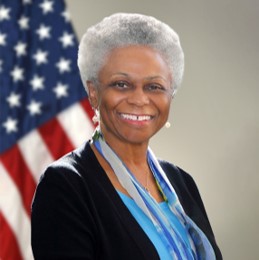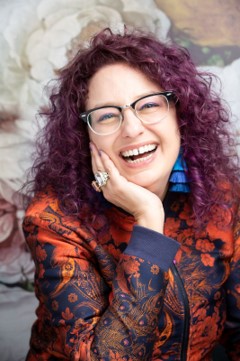Over the next several weeks, we will share notes from select NORDP 2020 virtual presentations. Check out the learning management system for details on all of the NORDP 2020 available presentations: https://nordp.mclms.net/en/package/list
- Login with your NORDP member info.
- Select the session you are interested in viewing.
- Go to the Session Materials box and click on Materials which will take you to the presentation video and slides.
- The session will also appear in your personal course list for future viewing.
MC: Jan Abramson, NORDP Fellow
Thanks to our session scribe, C. Scott Balderson, University of Utah!
Lightning Talks and Presenters:
1. Using Poetry to Mentor Faculty in Developing Research, Eric Wayne Dickey – Western Oregon University, edickey@wou.edu
The Mentoring Committee’s resident poet, Eric Dickey, explains how he uses poetry to create a shared vocabulary and experience with collaborators, as well as utilizing it as metaphor or simile to help explain complex concepts and assist scientific researchers, who may not be avid writers, find greater appreciation for and ease with the creative process necessary to write proposals or project reports. His talk provides some great examples that he uses regularly, and he urges participants to try similar narrative forms like songs and movies that can help audiences open discussion.
2. Mentoring as a Professional Development Journey, Angela Jordan – University of South Alabama, ajordan@southalabama.edu
When Angela Jordan first contemplated becoming a mentor for NORDP, she thought that she had few of the qualities she associated with the role in the context of this organization: she’d been in RD less than 5 years; her background was humanities, not science; she “only” had a Master’s degree; and she’d only been a mentor in our program for a year. Still, she decided to make the leap, and in doing so, she discovered a wealth of things. She had much to offer (her framing of elements of the experience in terms of “appreciative inquiry” and having a “growth mindset” are helpful constructs) yet realized that becoming a mentor was not an end point but a continuing part of her own development journey.
3. Following the Leaders, Erica Pitre – University of Louisiana at Lafayette, erica.pitre@louisiana.edu
Erica Pitre came to academic Research Development after years many years doing equivalent work in industry and building her skills and approaches to suit the needs of that field. This presentation is a brief examination of her first year in making the transition to academic RD, the obstacles she faced using the tools and techniques she’d refined in her previous career, and the wisdom to cope and prevail that she found in NORDP and its mentoring program.
4. Piloting Accountability Groups for Peer Mentoring Among Early Career Faculty, Kathy Partlow – University of Nebraska-Lincoln, kcpartlow@unl.edu
Ever the lover of data and the power that inferences from them can give to aid in mentoring program design and execution, Kathy Partlow unveils a pilot program for peer mentoring faculty around grant writing at her institution, complete with preliminary results and her thoughts on the meaning behind some of those as well as tips on ways other programs could be structured differently for different results. You could describe this as a natural experiment, in that Kathy allowed faculty groups different options with regard to frequency of meetings and type of accountability and then got to see what, if any, impact this had on faculty proposal submissions. Interesting results!
5. A Concrete Example of the Benefits of Being a Mentor: Creating a CV for Research Development, Jennifer Glass – Eastern Michigan University, jglass5@emich.edu
A common concern for some looking to enter into the Mentoring Program as a mentee is focus: how will you use the experience with the mentor? Do you want to refine your skills? Increase your network? Develop leadership? Explore new areas of RD? Transition to a new role? All of the above? It can be overwhelming and paralyzing. Jennifer Glass uses the example of working with a mentee on the very specific shared goal of documenting their RD activities and updating their CVs with a real focus on Research Development. Amazingly, in this very short presentation, she takes us through the process in a way that makes the (perhaps daunting) task feel completely replicable. I’m watching this one a few more times, until my own resume is done!
6. From Novice to Expert in RD – Mentor/Mentee Perspectives, Paula Carney – Loyola University Chicago, pcarney2@luc.edu
As part of establishing good mentoring relationships, it can be helpful to know what “level” the individuals are operating at in terms of research development. Paula Carney puts her background in psychology (with nods to the developmental psych giants) to good use by adapting a paradigm for RD levels, complete with practical examples, that allows users to ascertain where they are and, more importantly for the mentoring context, the type of professional activities and achievements they might see in mentors having already attained the level they would like to achieve. I think this topic is especially valuable as we consider whether formalized Certifications in our field would be beneficial.
7. Mentoring: Viewing the Engagement from the Mentee’s Perspective, John Barfield – Tennessee State University, jbarfield@tnstate.edu
If the previous talk was heavily weighted to an RD application of psychology, John Barfield’s topic takes us down a more philosophical path. Throughout his years, John has accumulated a view of the mentoring relationship as being mentee-focused, yet acknowledging that it is very much a two-person relationship that takes continual effort. As with most of us, he mentors in a variety of ways and settings to different types of mentees, and he has used this diversity of experience to distill some principles of being a good mentor (by always trying to see through the eyes of the mentee) and presents this philosophy in colorful and effective similes and examples.
8. Mentoring with Vulnerability, Hilda McMackin, Vanderbilt University, hilda.mcmackin@vanderbilt.edu
Hilda McMackin builds on the previous two talks, blending a philosophy of mentoring with some approaches like active and empathic listening that were developed in counseling settings. Her inspiration came from the book Dare to Lead by Renee Brown, who coins the concept of “rumbling with vulnerability.” Hilda applies that idea for mentoring as a way of establishing trust and connection necessary to the deepest relationships. She advocates having the courage to share, to connect what may not be similar experiences but different experiences that elicit the same emotions. Show the same interest and attention you want another person to have for you and your ides. Be vulnerable and hang in there through things that may not always be comfortable. In that way, trust is developed that allows true curiosity and real expectation setting to flourish without a façade of limits imposed by the fear of sharing ourselves with the person we’re mentoring or being mentored by.
Thanks for your interest in the Mentoring Lightning Storm. Feel free to reach out to any of the presenters, or email mentorprogram@nordp.org for more information.









